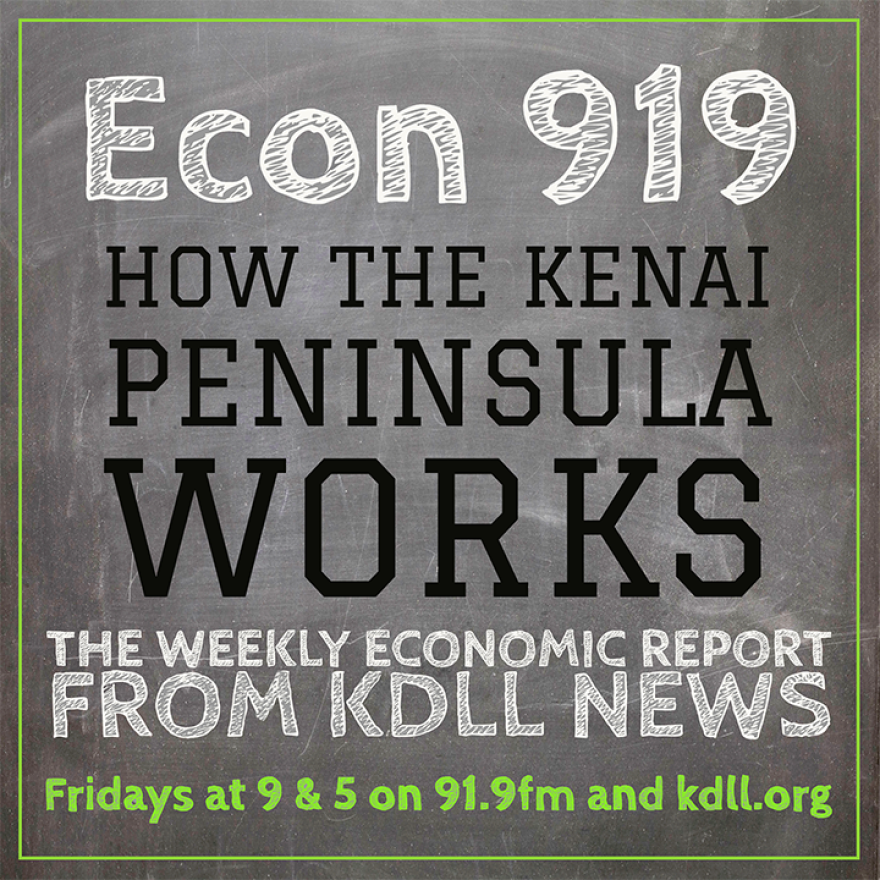If you were a city or borough official in 2020, you had a hard task in front of you — divvy up CARES Act funds without knowing how much demand there would be for each program.
Sometimes, cities underestimated that need. The city of Kenai set aside $400,000 for its rent and mortgage relief program last fall. As more calls came in and the demand became apparent, it upped the ante to $1 million.
“Oh, it was clearly a surprise. You could tell, the original allocation was way below what we needed," said Kenai City Manager Paul Ostrander.
“Right now, we’re at 280 households and just over $1 million of grant funds that have gone out for the rental and mortgage relief.”
Applications for that program were due in December. The Alaska Housing Finance Corporation, which administered the program using city and borough funds, is processing the final applications now.
Residents could get up to $1,200 per month for four to six months of housing payments. They had to prove they were struggling financially from the pandemic.
In Kenai, the average payment was about $922 per household. Soldotna, Homer, Kachemak and the borough carried out similar programs, though Kenai spent more than other peninsula cities.
It’s not the first Alaska housing relief program of the pandemic. AHFC helped Alaskans cover up to a month’s rent last summer.
But this fall program was much more popular, said Daniel Delfino, director of planning and program development for AHFC. In the end, they got three times the amount of applications.
“That could be a couple of things. It could be, we’re further in the pandemic and folks are like, ‘Geez, this is real, this isn’t a shorter-term thing,’ like maybe they thought it was going to blow over or they thought they could absorb it with their existing resources in June, when we had the first round," Delfino said. "Maybe one month of assistance wasn’t worth the hassle for some people but the four months the community partners were providing was worth it.”
He thinks another reason is that the cities got involved for the second round.
“We did our best with our marketing efforts," he said. "I mean, we did everything we could think of in the summer. But the local communities always have a better path to their neighbors.”
These communities have been learning in real time what their neighbors need. Earlier this month, Kenai sent $50,000 more to the food bank for its food box program, which has seen substantial demand during the pandemic. On the flipside, the city appropriated more than it could give out for a small business grant program last year.
“That’s the way this entire process has been," Ostrander said. "The city of Kenai received $10.3 million in grant funds and was given this guidance from the federal government, ‘This is how you can spend it.’ And we had to start from scratch to determine, how is the best way to use this money to benefit the city? And it was a huge lift and we allocated money to different buckets, thinking that we understand where the need would be the greatest."
"But as we moved through it, it was obvious that our first impression was completely wrong," he added. "Alaska housing was a great example.”
AHFC is doing another round of housing relief in 2021. The state, not cities, will oversee that program and the $200 million with which it comes. (Anchorage and other cities of 200,000 people or more can oversee their own programs.)
Unlike the fall version of the program, this one will help with up to a year in rent and can cover utilities. It also is restricted to renters. That rules out nearly half of the Kenai Peninsula recipients from the last round, who are homeowners.
Even though AHFC is not partnering with municipalities for that program, Delfino said they want to maintain those community partnerships going forward.
“We’re still trying to figure out how that goes forward but it’s something that we’ve spoken extensively about, trying to find ways to maintain that aspect of the program," he said. "Because it made a huge difference.”
Ostrander said it’s hard to tell how much of the need for housing relief predates the pandemic. But the CARES Act programs have generally shown a light on communities’ needs in a way that is helpful to those at the helm.
“We learned a lot about our community through this process," he said. "So I think that’s been really valuable.”
Kenai has more programs coming down the pipeline. Ostrander wouldn’t said what they are before they hit the council agenda, but they’ll be up for discussion at the next Kenai City Council meeting.





